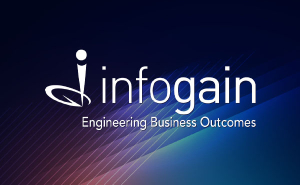- Posted on : July 29, 2022
-
- Industry : Digital and High Technology
- Service : Corporate
- Type: News

This is an excerpt from an industry story published in VAR India on 28th June 2022, featuring Sridhar Kolapalli, Vice President at Infogain. Click here to read the original article.
Technology continues to change our lives in subtle ways. Disruptive technologies dramatically change the way consumers, businesses and industries operate. Technology advancements such as AI, robotics, nanomaterials, biotech, bioinformatics, quantum computing and the Internet of Things (IoT) are transforming the world. People are adopting new and easy ways such as social media including Facebook, Instagram and many indigenous technologies to connect with the digital world. Digital technologies such as mobile, social media, smartphones, big data, predictive analytics and cloud are fundamentally different from the preceding IT-based technologies. Disruptive technologies provide opportunities for startup companies to gain a significant foothold in existing industries.
New advances in technology are still disrupting our lives in many cases for the best. Note that some of them are already in place, but they are still evolving and changing at a rapid pace, meaning the impact of these advances will only amplify. A disruptive technology has the potential to replace the existing systems or habits through its attributes that are measurable and superior. Disruptive technologies are not necessarily new or ground-breaking. Rather, it is technology that has the potential to disrupt an existing market or industry. Let's understand the view from the industry leaders:
Cloud adoption demands not only cloud-first but also a cloud-smart approach
Web 3.0 to disrupt the internet technology

Sridhar Babu Kolapalli, Vice President, Infogain
“While Web 3.0 may not fully overtake Web 2.0 for a few years, I believe that Web 3.0 will cause a paradigm disruption in the internet technology, especially by leveraging encryption & cryptographic breakthroughs such as homomorphic encryption. Now that companies are gearing towards Web 3.0, we at Infogain are building decentralized applications for our clients where users can own as well as control their personal data stored in a public distributed ledger. And as this trend picks up, users will be incentivized to share their data with research firms, which could be their healthcare data, product usage data, social data, etc.”






